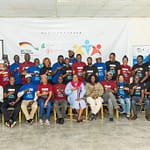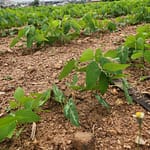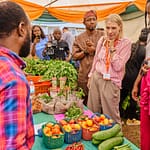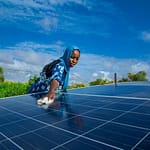At the 2024 Nigerian Clean Cooking Forum, policymakers, private sector leaders, and civil society stakeholders converged to chart a transformative path towards ensuring clean cooking energy for all Nigerians. With over 180 million citizens still reliant on traditional fuels, the forum emphasized the urgent need for inclusive solutions, investment in innovation, and public-private partnerships to meet Nigeria’s clean cooking targets by 2030.
According to the National Bureau of Statistics, 62% of Nigerian households use wood for cooking, 20% rely on kerosene, and only about 10.5% use Liquefied Petroleum Gas (LPG). Charcoal and other improved biomass options account for 4% and 3%, respectively, while a mere 1% use electricity. These statistics show that over 180 million Nigerians lack access to clean cooking fuels and technologies. This energy poverty has profound implications for the economy, health, deforestation, and climate change.
The 2024 Nigerian Clean Cooking Forum, held from October 9-10, 2024, in Abuja under the theme “Clean Cooking Energy for All: Prioritizing Inclusion,” brought together key stakeholders to discuss strategies for advancing clean cooking technologies in Nigeria. The forum highlighted critical environmental, health, and economic challenges and focused on how to accelerate the country’s transition to sustainable cooking energy solutions.
A central discussion point was Nigeria’s goal of providing clean cooking energy to 28.8 million households by 2030. This target aligns with national commitments to reduce greenhouse gas emissions, address deforestation, and improve public health. While solutions exist, accessibility remains a major barrier, with participants stressing the need for government incentives and credit provisions to make clean cooking stoves affordable for all Nigerians.
The event also showcased exhibitions of the latest clean cooking technologies. Panelists emphasized the need to create inclusive solutions that empower communities and ensure equitable access across the nation.
One of the forum’s key outcomes was the call for increased domestic production of clean cooking stoves. Stakeholders argued that transitioning from imported stoves to locally manufactured ones could strengthen Nigeria’s clean cooking industry, generate jobs, and stimulate economic growth. Participants also advocated for greater government support for private businesses already manufacturing clean cooking stoves, rather than creating competition by producing more stoves under government initiatives.
At the forum, Nigeria’s draft National Clean Cooking Policy was also presented. This policy sets the framework for achieving universal clean cooking access by 2030 and aligns with the country’s broader goals for reducing carbon emissions and promoting sustainable development. The policy represents a significant step towards addressing energy poverty and creating opportunities for greener jobs and industries across Nigeria.












